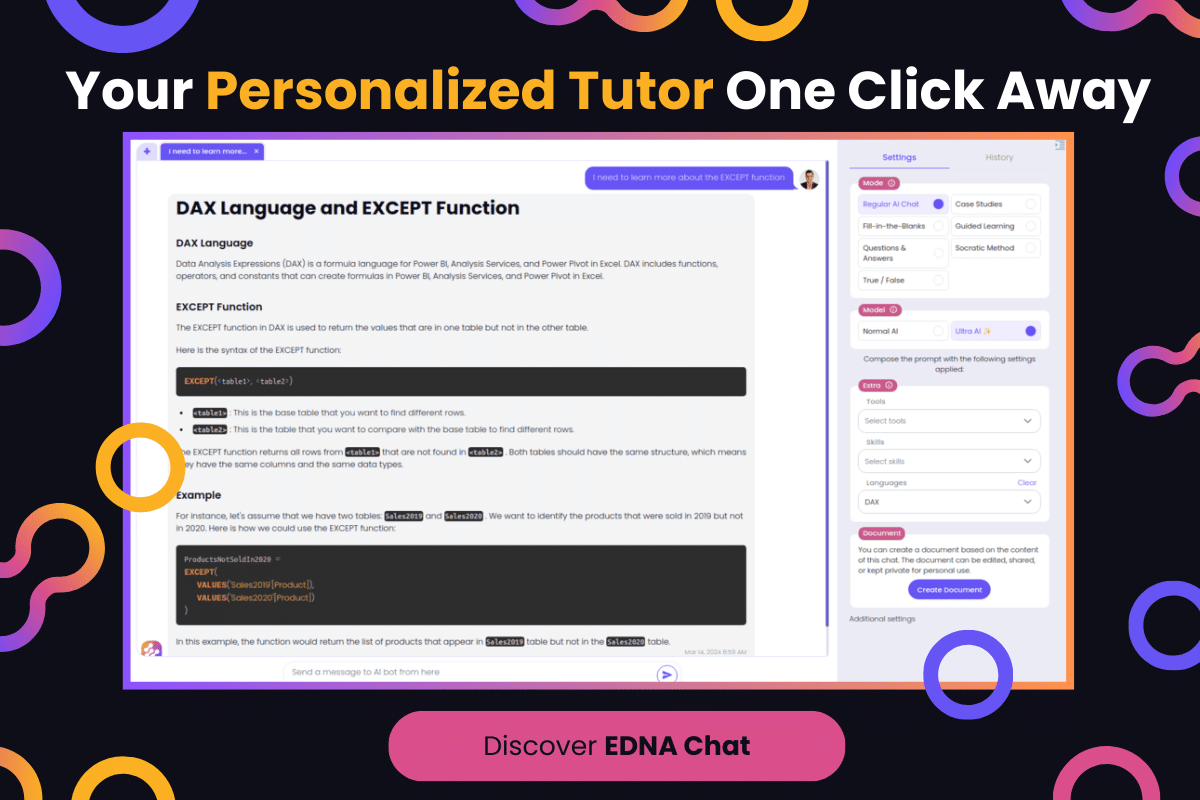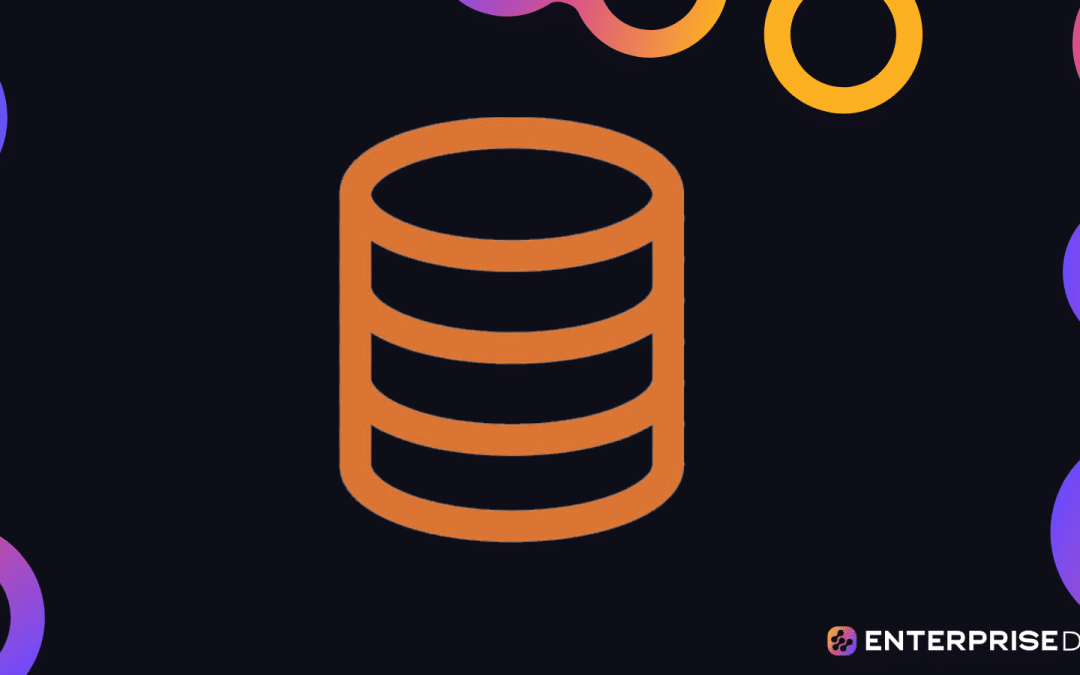So, you want to land a great job at Facebook (Meta)? Well, as a data professional exploring potential career opportunities, you may be wondering what types of SQL interview questions will be asked?
Well, let me tell you, you need to know your stuff before the big day; in fact, it’s crucial you learn what we’ve discovered.
It doesn’t matter what specific role you’re applying for; from a data analyst to a data scientist, there are certain things you need to know.
Facebook SQL interview questions include:
How would you retrieve the total number of likes for each post in the ‘Posts’ table using SQL?
Can you demonstrate a LEFT JOIN operation between the ‘Users’ and ‘Comments’ tables to display user information along with their comments?
Utilizing the Coalesce function, how would you handle NULL values in a column named ‘Revenue’ in a dataset, returning a default value if NULL?
To boost your confidence and showcase your SQL expertise in Facebook interviews, you need to focus on practicing the SQL queries related to the job, the industry and the company.
In this article, we will look at what you need to know before you apply!
Let’s dive in!

Key SQL Concepts for Facebook Interview
If your position requires SQL knowledge, you first need to understand key SQL concepts. As a data professional, mastering SQL is essential for your success when considering a career at Facebook (now Meta).
Facebook relies heavily on data and SQL (Structured Query Language) serves as a powerful tool for handling and processing this data.
Key concepts include:
1. Common Table Expressions (CTEs)
Common Table Expressions (CTEs) are pivotal for enhancing SQL code clarity. By breaking down complex queries into manageable parts, CTEs promote a modular and readable approach. Their organizational benefits go beyond syntax elegance, providing simplicity and maintainability to SQL scripts.
Facebook SQL interview question sample: Using Common Table Expressions (CTEs) and leveraging ‘SELECT DISTINCT,’ write a SQL query to identify the number of distinct users who have both liked and commented on posts in the past month.
Consider the ‘Likes’ and ‘Comments’ tables for user engagement details and ensure the results showcase unique users engaging in both activities.

2. Window Functions
These are essential for solving complex data manipulation problems, as they allow you to perform calculations across a set of rows that are related to the current row.
Facebook SQL interview question sample: Can you explain a specific business scenario at Facebook where the application of Window Functions in SQL was instrumental in deriving meaningful insights from the data? Provide an example query utilizing a Window Function and explain its purpose.
3. JOIN Operations
Understand JOINs in SQL to combine data from different tables, like INNER JOIN and LEFT JOIN for flexible results based on table relationships.
Facebook SQL interview question sample: In the context of Facebook’s user and post data, write a SQL query using a LEFT JOIN operation to retrieve all users from the ‘Users’ table and their corresponding posts from the ‘Posts’ table.
Ensure to include users who haven’t made any posts, indicating the preservation of records from the left table or the two tables. Additionally, display the user’s name and post content in the result set. How would you optimize this query for efficiency in a real-time data environment?

4. Ranking Functions
Understanding the difference between rank() and dense_rank() functions is crucial for solving problems that require ranking of results.
Facebook SQL interview question sample: Facebook often deals with large datasets. How would you approach ranking user engagement based on their activity within a given timeframe using SQL? Explain the difference between the rank() and dense_rank() functions and when you would choose one over the other.
5. Coalesce Function
The Coalesce function proves invaluable in managing NULL values within your dataset. This versatile tool seamlessly returns the first non-NULL expression from the provided arguments, ensuring robust data handling and enhancing overall data integrity.
Facebook SQL interview question sample: Handling NULL values is crucial in data analysis. Describe a situation at Facebook where the Coalesce function would be essential for processing data accurately. Provide an example query showcasing the use of Coalesce in managing NULL values effectively.

6. Datetime Functions
Proficiency in working with date and time calculations is pivotal in tackling various challenges, as numerous problems hinge on time-based data analysis.
A strong command of datetime functions empowers you to navigate temporal intricacies with precision, ensuring a comprehensive approach to handling diverse scenarios in your data analysis endeavors.
Facebook SQL interview question sample: Facebook’s platform generates a vast amount of time-based data. How would you use datetime functions in SQL to analyze user activity patterns over a specific period? Provide an example query demonstrating the application of datetime functions for meaningful data insights.
7. Aggregations
When handling large datasets, proficiency in aggregate functions like COUNT, SUM, AVG, MIN, MAX, and SELECT COUNT is crucial. These functions enable calculations on sets of values, providing a summarized single value.
To filter results based on these calculations, use the HAVING clause with GROUP BY. Knowing when to apply DISTINCT is also vital, removing duplicate values from your query results.
Facebook SQL interview question sample 1: Facebook frequently deals with vast datasets. Can you provide an example where utilizing the COUNT() function would be pivotal in summarizing user engagement metrics? How would you approach using the SUM() function to analyze the cumulative impact of a particular feature on the platform?
Facebook SQL interview question sample 2: Write an SQL query to determine the total count of unique users who have both liked and commented on posts in the last month. Utilize the ‘Likes’ and ‘Comments’ tables, and use ‘DISTINCT c . user_id’ to ensure accuracy in counting only distinct user IDs. Your query should provide a concise overview of user engagement in both activities within the specified timeframe.

8. Subqueries
Explore nesting SELECT statements for precise constraints in WHERE clause or HAVING clause. Subqueries enable meticulous data extraction, ensuring tailored results. Delve into the efficiency of UNION ALL, seamlessly merging datasets while preserving duplicates.
This dynamic duo enhances your SQL proficiency, providing essential tools to confidently navigate diverse data scenarios.
Facebook SQL interview question sample: How would you use subqueries to analyze user engagement, specifically identifying users with more than the average number of posts in the last month? Also, demonstrate the use of UNION ALL to merge datasets and retain duplicates for a thorough analysis.
9. Categorizations with CASE Statements
CASE statements streamline data categorization in SQL queries, providing a concise and structured approach. Whether assigning labels based on conditions or creating customized values, CASE statements enhance code clarity and readability, making data categorization straightforward within your queries.
Facebook SQL interview question sample: Imagine you’re tasked with categorizing user feedback at Facebook into positive, neutral, and negative sentiments. How would you employ CASE statements in SQL to efficiently categorize this diverse feedback dataset? Can you share an example query that showcases the use of CASE statements for effective data organization?

10. Ratio Calculations
Understanding the concept of ratio calculations using a numerator and denominator.
Facebook SQL interview question sample: Facebook wants to analyze the success rate of a newly introduced feature by calculating the ratio of positive user interactions to the total interactions. How would you approach this using SQL? Explain the concept of ratio calculations, and provide a sample query demonstrating how to compute and interpret this ratio for meaningful insights.
Mastering these foundational SQL concepts not only ensures success in Facebook’s technical interviews but also empowers you to efficiently analyze and manipulate data within their dynamic technical ecosystem.
Regular practice with diverse SQL problems and staying updated on the latest advancements in SQL and database technologies will further enhance your readiness for a data-focused role at Facebook.
Levels of SQL Questions in Facebook Interviews

When vying for a position at Facebook, your SQL prowess is under the spotlight. The interview questions span various difficulty levels, tailored to assess your expertise.
Here’s an overview of the types of SQL questions you might encounter at different career stages:
Basic SQL Questions for Entry-Level Positions:

Entry-level SQL questions will assess your foundational skills. Expect inquiries about crafting basic SELECT statements and filtering data using WHERE clauses, showcasing your ability to navigate fundamental SQL concepts.
Here are some basic Facebook SQL interview questions:
Interview question sample: As an entry-level candidate, demonstrate how you would use a SELECT statement to extract specific user data, such as names and email addresses, from a user database table.
Interview question sample: Facebook deals with massive datasets. How would you employ WHERE clauses and filtering to extract relevant information, like user activity within the last month, from a large user interaction table?
Intermediate SQL Questions for Mid-Level Positions:

As you progress to mid-level positions, Facebook’s SQL interviews will delve deeper into your capabilities. You’ll encounter questions testing your proficiency in JOIN operations for combining data and your understanding of subqueries for more nuanced data extraction.
Here are some intermediate Facebook SQL interview questions:
Interview question sample: You’re now in a mid-level role. Explain a scenario where JOIN operations would be crucial to amalgamate data from multiple tables. Provide a sample query illustrating the effectiveness of JOINs in resolving a specific data integration challenge.
Interview question sample: Subqueries are powerful tools. Describe a situation at Facebook where you would use a subquery to gain meaningful insights. Share an example query showcasing the use of subqueries for data analysis.
Advanced SQL Questions for Senior Positions:

For senior roles, Facebook’s SQL interviews demand a high level of expertise. Expect questions on performance optimization, where you’ll demonstrate your ability to fine-tune queries, and tackle complex data analysis scenarios that require strategic manipulation of intricate datasets.
Here are some advanced Facebook SQL interview questions:
Interview question sample: Senior positions demand optimization skills. How would you optimize a complex SQL query involving multiple joins and aggregations to ensure it runs efficiently? Share insights into your approach and techniques for query optimization.
Interview question sample: Using advanced SQL techniques, write a query that calculates the total revenue for each product category in the ‘Sales’ table, and then group the results based on the revenue range. Share insights into your approach and techniques.
These questions map out the progression from foundational to advanced SQL skills, aligning with the expectations at different career levels within Facebook.
Prepare by not just mastering syntax but by showcasing practical problem-solving skills and a nuanced understanding of Facebook’s unique data landscape.
Mastering Complex Queries
When navigating complex SQL queries in your career interview, a strategic approach is key to uncovering meaningful insights from your data.
Consider the following tips to streamline your process:
- Break Down the Problem: Start by dissecting the problem into smaller components. Tackle each calculation individually, especially when dealing with percentages, using integer or float data types for precision.
- Utilize Case Statements: Embrace case statements for handling diverse conditions within a single query. This allows you to apply varied logic based on specific criteria, efficiently filtering your data.
SELECT user_id, CASE WHEN status = 'open' THEN 'active' ELSE 'inactive' END AS user_status FROM your_table- Harness Aggregate Functions: Apply various aggregate functions, such as calculating percentages, lift, or overall percentages systematically. Test these calculations separately before integrating them into a comprehensive query.
SELECT status, COUNT(*) AS total_count, COUNT(*) * 100.0 / SUM(COUNT(*)) OVER () AS percentage FROM your_table GROUP BY status- Format Outputs Effectively: Enhance readability by utilizing formatting options like tables and bullet points. Clear presentation significantly aids in conveying complex results.
By adopting a confident and systematic approach to these challenges, you’ll be well-prepared to navigate and excel in even the most intricate SQL queries throughout your career at Facebook.
Facebook SQL Case Studies: Navigating Real-world Challenges
Here are two real-life case studies that mirror the questions candidates face. These scenarios will dissect the practical application of SQL concepts, providing a firsthand look into the intricacies of problem-solving in a Facebook interview setting.
Case Study 1: User Engagement Analysis

Problem Statement: You are tasked with analyzing user engagement on Facebook. Write a SQL query that retrieves the top three posts with the highest engagement metrics (likes, comments, shares) from the past month. Consider the ‘Posts’ table for post details and the ‘Engagement’ table for engagement metrics.
Thought Process: You must demonstrate proficiency in combining data from multiple tables, aggregating engagement metrics, and ordering the results appropriately. The solution involves crafting a JOIN operation between the ‘Posts’ and ‘Engagement’ tables, calculating the total engagement for each post, and sorting the results in descending order to identify the top-performing posts.
Case Study 2: Revenue Analysis for Advertising Campaigns

Problem Statement: Facebook is running multiple advertising campaigns, and you need to analyze the revenue generated by each campaign. Write a SQL query that calculates the total revenue for each campaign, considering the ‘Campaigns’ table for campaign details and the ‘Transactions’ table for revenue data.
Thought Process: This case study evaluates your ability to perform aggregations and handle data from different tables. You should use the GROUP BY clause to group data by campaign, calculate the total revenue for each group using the SUM() function, and present the results in a clear and organized manner.
Additionally, handling potential NULL values in the ‘Transactions’ table requires a thoughtful use of functions like COALESCE for accurate revenue calculations.
These case studies not only test technical proficiency but also assess problem-solving skills and the ability to apply SQL concepts to real-world scenarios, reflecting the challenges candidates may encounter in Facebook SQL interviews.
Tips for Facebook SQL Interviews

Preparing for your Facebook SQL career involves understanding and effectively navigating the interview process.
Whether you’re an engineer, business professional, or eyeing a specialized role, consider the following tips:
Essential Insights: Understand Meta’s primary products: Facebook, Instagram, WhatsApp, Messenger, and Oculus. Grasp their functionalities for a foundational understanding of data structures.
Research Insights: Explore platforms like Glassdoor for valuable insights and feedback on the interview process. Note common themes and challenges to tailor your approach accordingly.
Communication with Recruiters: Maintain a consistent and professional dialogue with your recruiter. Actively seek clarification and ask questions, showcasing initiative and a desire to learn.
Tailored Preparation: Practice potential questions, emphasizing your SQL and problem-solving skills. Be ready to adapt to different scenarios that may arise during the interview.
Technical Focus for Data Engineers: Engineers, focus on showcasing your knowledge of SQL and related technologies. Be prepared for technical and specific questions, demonstrating core concepts, coding, and debugging abilities.

Strategic Understanding for Business Professionals: Business professionals, highlight how SQL benefits your role. Showcase your ability to interpret data, draw insights, and effectively communicate with your team during the interview.
Salary Expectations: Research realistic salary expectations for data analyst roles, data engineer roles or similar roles at Meta. This knowledge aids informed decisions during offer negotiations.
Meta’s Technological Initiatives: Familiarize yourself with Meta’s cutting-edge projects, like building the metaverse. Stay updated on technological advancements, enhancing your interview readiness.
Cultural Fit Emphasis: Remember, the interview is not just about technical skills but also cultural fit. Emphasize your teamwork, collaboration, and resilience, showcasing how you align with Facebook’s organizational culture.
By incorporating these tips into your preparation, you’ll enhance your ability to successfully navigate the Facebook SQL interview process, positioning yourself as a strong candidate for your desired role.
If you want to elevate your SQL mastery, consider exploring these effective courses:
Final Thoughts
Mastering SQL is pivotal for a successful career at Facebook. From handling complex queries to navigating the intricacies of Facebook’s diverse products and departments, a solid grasp of SQL concepts is non-negotiable.
Practice real-life scenarios, delve into case studies, and familiarize yourself with Facebook’s interview process to confidently navigate your SQL career journey at this tech giant.
Stay sharp, stay curious, and excel in the dynamic landscape of Facebook SQL careers.
Frequently Asked Questions
How should I prepare for a SQL career at Facebook?
To prepare for a SQL career at Facebook, start by gaining a strong understanding of the fundamentals, including relational database management systems (RDBMS) and structured query language (SQL). You should also practice solving real-world problems using SQL and work on SQL coding challenges. There are several resources available online, including tutorials, courses, and coding platforms to help you practice and develop your skills.
What level of SQL expertise is required for data science roles at Facebook?
For data science roles at Facebook, you should have a strong grasp of SQL concepts, including querying data, filtering results, table joins, and groupings. Additionally, being comfortable with window functions, query optimization, and indexing will prove beneficial in data science roles at Facebook.
Are Leetcode SQL problems similar to those asked at Facebook interviews?
Leetcode SQL problems can be a great resource for practicing the types of questions you might face in a Facebook interview. Although there may not be an exact match between Leetcode problems and those asked by Facebook interviewers, the practice and exposure to a variety of problem types will help you build your SQL problem-solving skills.
Do FAANG companies typically ask candidates advanced SQL questions?
FAANG companies, including Facebook, often ask candidates SQL questions ranging from basic to advanced levels during interviews. As a candidate, it’s crucial to be prepared for a wide range of questions involving SQL syntax, database concepts, and performance optimization techniques.
Where can I find resources to practice SQL for Facebook interviews?
There are several resources available online to help practice SQL for Facebook interviews, including websites like Leetcode, HackerRank, and InterviewBit. Additionally, you can find various tutorials, blog posts, and video lectures that can guide you through SQL interview preparations.
What SQL query syntax is commonly used for selecting specific columns in a Facebook database?
In SQL, the ‘SELECT p’ syntax is frequently employed, where ‘p’ represents a specific column or expression. For instance, if you want to retrieve information about user profiles, you might use a query like:
SELECT UserName, Email, ProfilePicture FROM Users;
This not only ensures data precision but also aligns with the fundamental SQL skills valued in Facebook career interviews.








